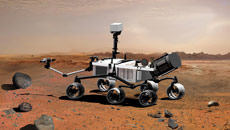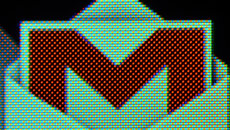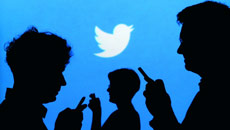A Michigan State University researcher has claimed to plug the hole in famous theoretical physicist and cosmologist Stephen Hawking’s black hole theory.
“In 1975, Hawking discovered that black holes are not all black. They actually radiate a featureless glow, now called 'Hawking radiation',” professor Chris Adami from Michigan State University said.
In his original theory, Hawking stated that the radiation slowly consumes the black hole and it eventually evaporates and disappears, concluding that information and anything that enters the black hole would be irretrievably lost.
But this theory created a fundamental problem, dubbed as the information paradox.
“According to the laws of quantum physics, information cannot disappear,” Adami said.
“A loss of information would imply that the universe itself would suddenly become unpredictable every time the black hole swallows a particle. That is just inconceivable. No law of physics that we know allows this to happen,” he explained.
So if the black hole sucks in information with its intense gravitational pull, then later disappears entirely, information and all, how can the laws of quantum physics be preserved?
The solution, Adami said, is that the information is contained in the stimulated emission of radiation, which must accompany the Hawking radiation - the glow that makes a black hole not so black.

Stimulated emission makes the black hole glow in the information that it swallowed.
“Stimulated emission is the physical process behind LASERS (Light Amplification by Stimulated Emission of Radiation). Basically, it works like a copy machine: you throw something into the machine and two identical somethings come out,” Adami noted.
"If you throw information at a black hole, just before it is swallowed, the black hole first makes a copy that is left outside. This copying mechanism was discovered by Albert Einstein in 1917, and without it, physics cannot be consistent,” the Michigan State professor claimed.
The debate about the behaviour of black holes, which has been ongoing since 1975, was reignited when Hawking posted a blog in January this year, stating that event horizons - the invisible boundaries of black holes - do not exist.
Hawking, considered to be the foremost expert on black holes, has over the years revised his theory and continues to work on understanding these cosmic puzzles.
According to Paul Davies, cosmologist at Arizona State University, “Adami has correctly identified the solution to the so-called black hole information paradox. Ironically, it has been hiding in plain sight for years.”
“Stephen Hawking’s wonderful theory is now complete in my opinion. The hole in the black hole theory is plugged, and I can now sleep at night,” Adami chuckled in the study published in the journal Classical and Quantum Gravity.





